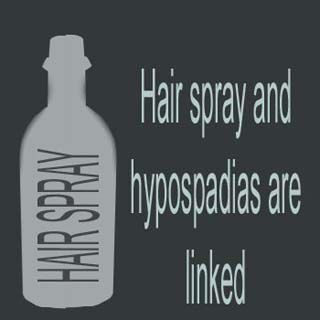
The study was conducted by the researchers from Imperial College London, University College Cork and the Centre for Research in Environment Epidemiology in Barcelona. According to this study, women who in their first trimester of pregnancy, are exposed to hairspray increase the chances 2 to 3 times more of bearing a son suffering from hypospadias.
Hypospadias is considered one of the most common birth defects of the male genitalia. The cause of this particular defect is still not clearly revealed. In this defect, the urinary opening is displaced to the underside of the penis.
The corresponding author of this study is Professor Paul Elliot from the Department of Epidemiology and Public Health at Imperial College London. He says that, “Hypospadias is a condition that, if left untreated, can cause problems in later life. Although surgery to correct it is usually successful, any surgery will be traumatic for the child and his parents. It is encouraging that our study showed that taking folic acid supplements in pregnancy may reduce the risk of a child being born with the condition. Further research is needed to understand better why women exposed to hairspray at work in the first 3 months of pregnancy may have increased risk of giving birth to a boy with hypospadias.â€
So as per the findings, intake of folic acid supplements in the first three months of pregnancy can decrease the risk of acquiring this defect by 36 percent. These supplements have already being recommended by the UK Department of Health. In order to prevent neural tube defects like spina bifida, these supplements are prescribed for intake until the twelfth week of pregnancy.
It is stated that the link between hairspray and hypospadias is due to the chemicals present in hairspray called phthalates. Earlier studies have revealed that phthalates mess up the bodies’ hormonal system and also affect reproductive development. After the boy reaches his first birthday, this defect is treatable through corrective surgery. However if the defect is grave, it could lead to difficulties with sexual relations, urinating and fertility.
It is assumed that hypospadias affects 1 out of 250 boys on an average, in the UK and in the USA. The researchers undertook detailed telephonic interviews of more than 400 mothers who had conceived sons suffering from hypospadias. They were questioned about their lifestyle and health, vegetarianism, maternal occupation, intake of folate supplements and smoking.
Smaller studies conducted earlier have stated that maybe hypospadias is associated with vegetarianism. However this recent study could not trace hypospadias in women who followed a vegetarian diet during pregnancy.
This study was published in the Environmental Health Perspectives journal.
